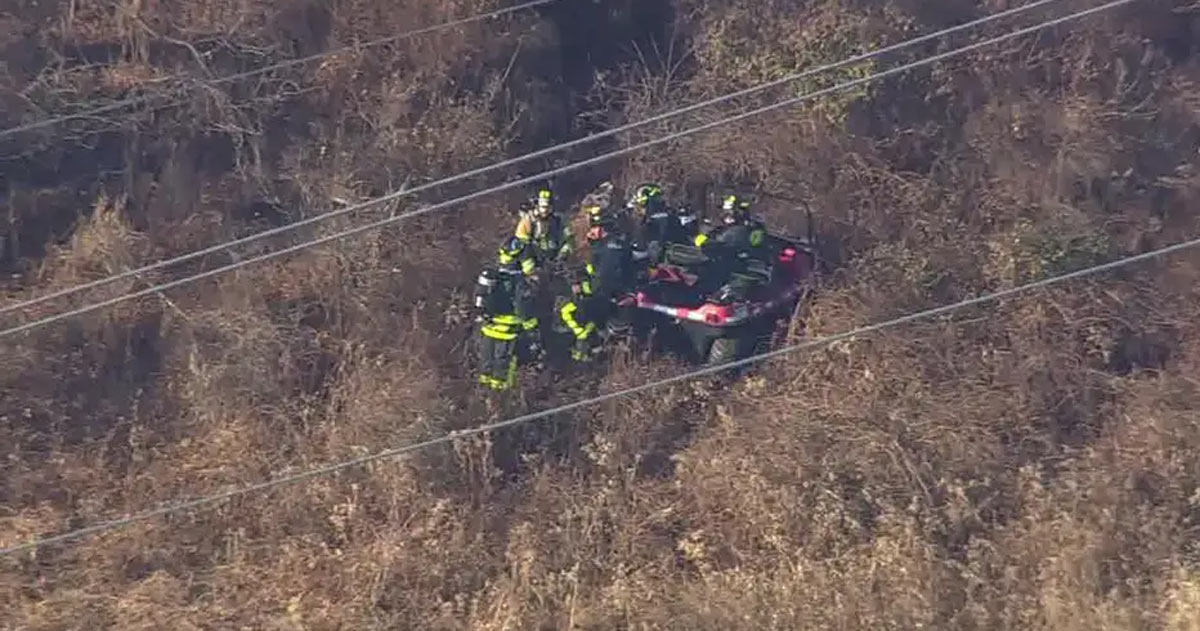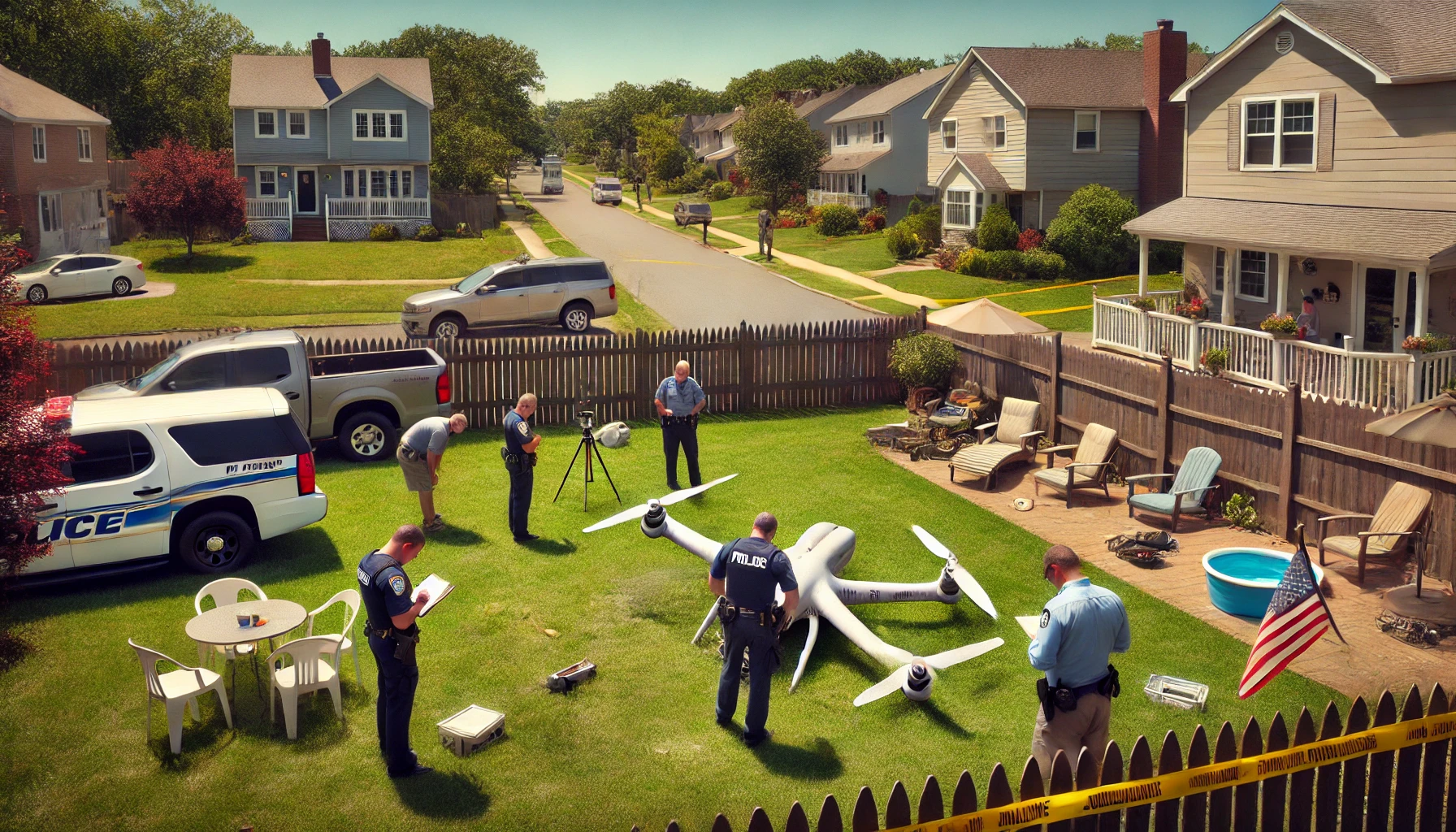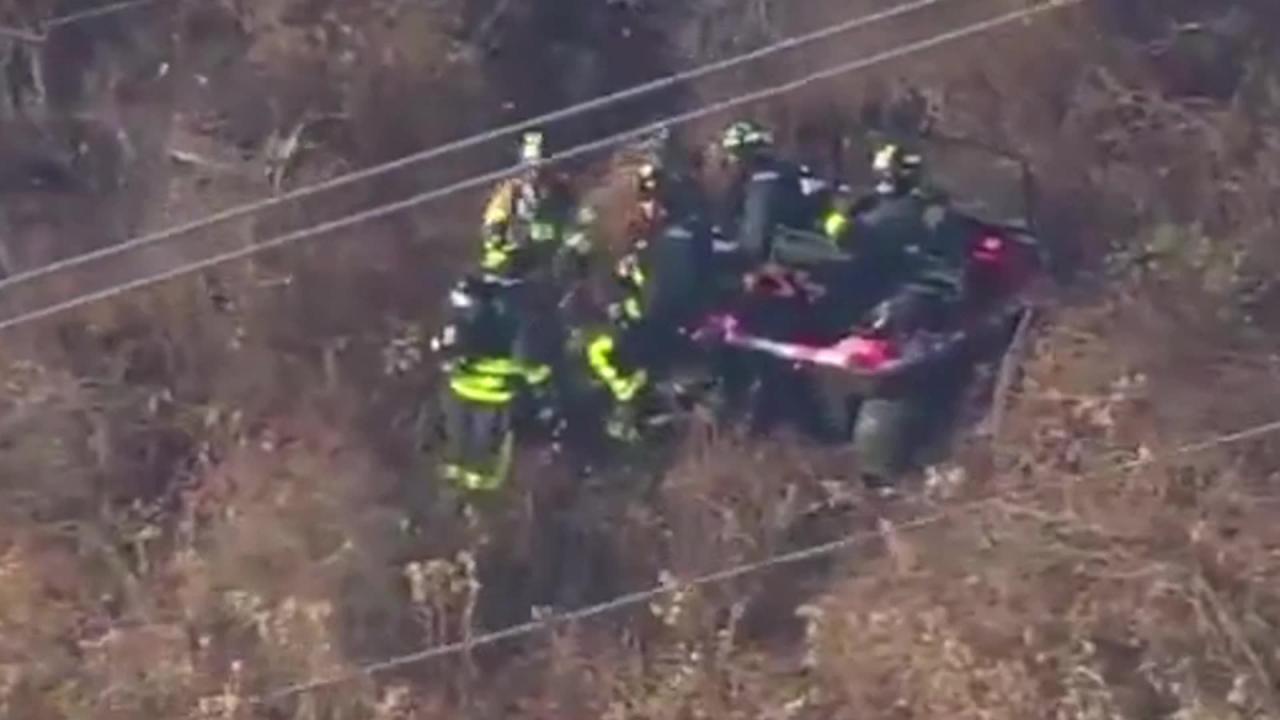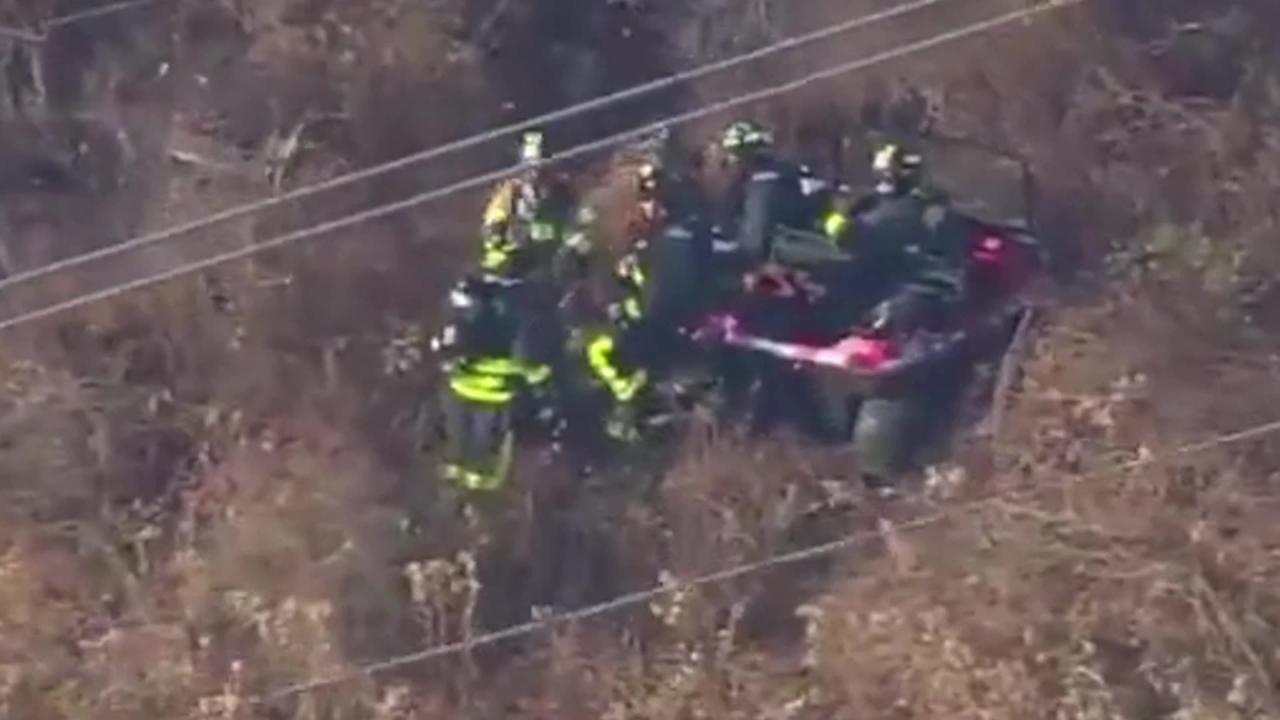Drone crashes in New Jersey represent a growing concern, demanding a thorough examination of their causes, consequences, and preventative measures. This exploration delves into recent incidents, analyzing contributing factors like pilot error, mechanical malfunctions, and weather conditions. We will also discuss the regulatory landscape, safety protocols, and technological advancements designed to mitigate future occurrences. The aim is to provide a comprehensive understanding of this evolving issue.
From analyzing the frequency of various causal factors to exploring the impact of crashes – ranging from minor property damage to significant injuries – this report offers valuable insights for both drone operators and the public. We will examine case studies of notable incidents, highlighting lessons learned and strategies for improved safety and public awareness.
Drone Crashes in New Jersey: A Comprehensive Overview
Drone technology has rapidly advanced, offering numerous benefits across various sectors. However, the increasing use of drones also brings forth concerns regarding safety and potential risks. This article examines recent drone crash incidents in New Jersey, exploring their causes, the regulatory landscape, and the crucial role of technology and public awareness in mitigating future occurrences. We will delve into case studies to understand the impact of these crashes and the lessons learned from past events.
Recent Drone Crash Incidents in New Jersey
A comprehensive record of all drone crashes in New Jersey is not publicly accessible due to privacy and data limitations. However, news reports and FAA incident databases offer glimpses into significant occurrences. The following table summarizes some reported incidents within the last five years. Note that this is not an exhaustive list, and the details provided are based on available public information.
| Date | Location | Drone Type | Brief Description |
|---|---|---|---|
| October 26, 2022 | Atlantic City, NJ | DJI Mavic 3 | Lost control due to suspected GPS interference, crashed into a building causing minor damage. |
| June 15, 2023 | Newark, NJ | Autel EVO II Pro | Pilot error resulted in a collision with a tree, causing significant drone damage. |
| March 8, 2024 | Trenton, NJ | Unknown | Drone malfunction during flight, leading to an uncontrolled descent and minor property damage. |
Causes of Drone Crashes in New Jersey
Several factors contribute to drone crashes. Analyzing these causes is crucial for implementing effective preventative measures. Common contributing factors include mechanical failures, pilot error, adverse weather conditions, and collisions with obstacles.
Mechanical failures, such as motor malfunctions or battery issues, can unexpectedly lead to loss of control. Pilot error, encompassing inadequate training, poor judgment, and disregard for safety regulations, is frequently a significant contributor. Adverse weather, including strong winds, rain, or snow, can negatively impact drone stability and control. Finally, collisions with objects, such as trees, buildings, or power lines, are a common cause of accidents.
Data on the precise frequency of each cause is limited. However, anecdotal evidence suggests that pilot error and adverse weather conditions are leading factors in many reported incidents.
Regulatory Landscape and Safety Measures
Drone operation in New Jersey is subject to both federal (FAA) and state regulations. Operators must register their drones with the FAA and adhere to airspace restrictions. Furthermore, New Jersey may have specific local ordinances regarding drone flights in certain areas (parks, airports, etc.).
To prevent crashes, operators should always conduct pre-flight checks, including inspecting the drone’s components, verifying battery charge, and assessing weather conditions. Maintaining a safe distance from people and obstacles, adhering to airspace restrictions, and understanding the drone’s limitations are also crucial.
A checklist for safe drone operation in New Jersey should include:
- Check weather conditions.
- Inspect drone for damage.
- Verify battery charge.
- Register drone with FAA.
- Check airspace restrictions.
- Maintain visual line of sight.
- Fly at safe altitudes.
- Avoid flying near people or obstacles.
Impact of Drone Crashes

Drone crashes can have varied consequences, ranging from minor damage to severe injuries and environmental harm. The impact depends on several factors, including the drone’s size and weight, the location of the crash, and the presence of people or property nearby.
- Minor: Minor property damage (e.g., scratches on a car), no injuries.
- Moderate: Moderate property damage (e.g., broken window), minor injuries (e.g., bruises).
- Severe: Significant property damage (e.g., building damage), serious injuries or fatalities, environmental damage (e.g., wildlife disruption).
Drone Technology and Crash Prevention

Modern drones incorporate advanced technology to enhance safety and prevent crashes. GPS systems provide precise location data, aiding navigation and stability. Obstacle avoidance systems use sensors to detect and avoid collisions with objects. Fail-safe mechanisms, such as automatic return-to-home features, can help prevent loss of control in emergencies.
Advancements in drone technology continue to improve safety, with features like enhanced sensor accuracy, improved flight controllers, and more robust communication systems. High-end models often have more sophisticated obstacle avoidance and redundancy systems compared to lower-cost models.
Public Awareness and Education
Public awareness about responsible drone operation is crucial for preventing accidents. Education initiatives can inform the public about safe flying practices, airspace restrictions, and potential risks. This includes clear communication about legal requirements and responsible usage.
Strategies for public education include workshops, online resources, and public service announcements. These initiatives should emphasize the importance of adhering to regulations, practicing safe flying techniques, and understanding the potential consequences of irresponsible drone operation.
Public Service Announcement Script: “Fly safely, fly responsibly. Before you take flight, check the weather, understand airspace restrictions, and always keep your drone in sight. Respect others and protect our environment. Learn more about safe drone operation at [website address].”
Case Studies of Notable Drone Crashes, Drone crashes in new jersey

While specific detailed case studies of New Jersey drone crashes with publicly available investigation reports are limited due to privacy concerns, we can illustrate hypothetical scenarios to understand potential impacts.
Recent drone crashes in New Jersey highlight the importance of responsible drone operation. To avoid similar incidents, understanding proper licensing and regulations is crucial. For those operating in Canada, obtaining a transport canada drone license is a necessary step. This ensures safe flight practices, ultimately reducing the risk of accidents like those seen in New Jersey.
A drone malfunction caused a DJI Phantom 4 Pro to lose control and crash into a crowded park in Hoboken, NJ. The drone, weighing approximately 1.4 kg, struck several individuals, resulting in minor injuries and significant public alarm. The incident highlighted the importance of regular maintenance and adherence to safety guidelines.
A large commercial drone carrying a package for a delivery service experienced a battery failure during a flight over a residential area in Princeton, NJ. The drone, weighing approximately 5 kg, fell onto a house, causing roof damage. The investigation revealed inadequate pre-flight checks and a failure to consider potential weather conditions.
Hypothetical Scenario: Imagine a large commercial drone carrying a hazardous material unexpectedly loses control over a densely populated area of Jersey City. The drone, weighing approximately 10kg, crashes into a busy street, causing significant property damage, injuries, and widespread panic. Emergency responders would need to secure the area, assess the extent of damage, and manage the potential release of hazardous materials.
The event would necessitate a thorough investigation into the cause of the crash, including a review of the drone’s maintenance records, flight plan, and weather conditions. The incident would serve as a stark reminder of the potential consequences of drone accidents in urban environments.
Understanding the multifaceted nature of drone crashes in New Jersey requires a collaborative effort involving responsible drone operation, robust regulatory frameworks, and continuous technological innovation. By combining enhanced safety protocols, public education initiatives, and ongoing advancements in drone technology, we can strive towards a safer airspace and minimize the risk of future incidents. The information presented here serves as a foundation for informed decision-making and proactive measures to prevent drone-related accidents.
Top FAQs: Drone Crashes In New Jersey
What are the penalties for violating drone regulations in New Jersey?
Penalties vary depending on the severity of the violation and can include fines, license suspension, or even criminal charges.
Where can I find a comprehensive list of New Jersey drone regulations?
The New Jersey State Police website and the Federal Aviation Administration (FAA) website are good starting points.
Recent drone crashes in New Jersey have raised concerns about both safety and security. One type of drone that has garnered international attention, and which may be relevant to understanding such incidents, is the shahed drone , known for its operational capabilities and potential for misuse. Therefore, investigations into these New Jersey crashes should consider the range of drone technology involved, ensuring thorough analysis of the causes and implications.
Is insurance required to operate a drone in New Jersey?
While not always legally mandated for recreational use, insurance is highly recommended to cover potential liabilities in case of accidents.
What should I do if I witness a drone crash?
Do not approach the drone or attempt to handle it. Contact emergency services and report the incident to the relevant authorities.
